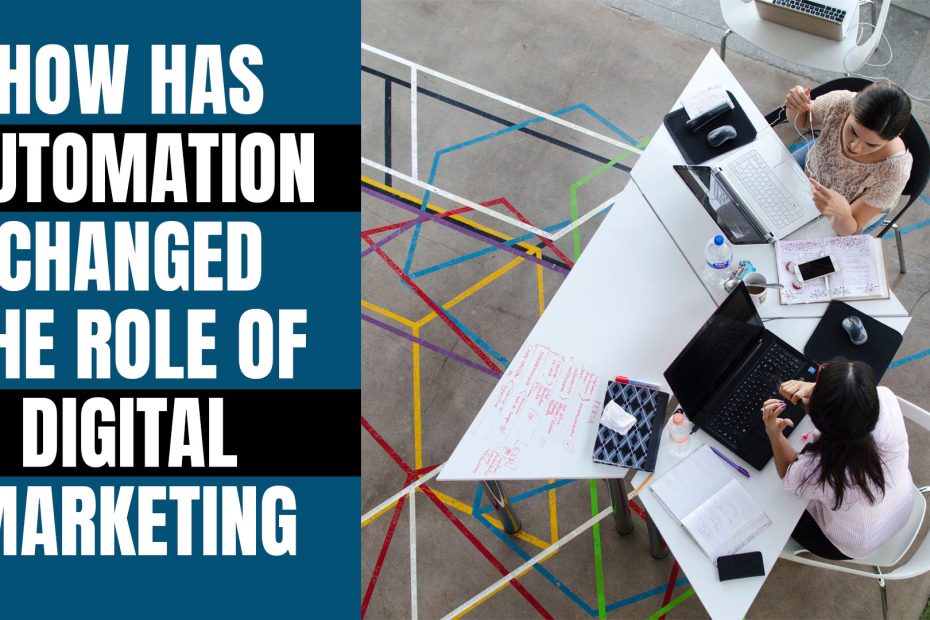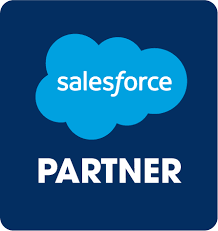Digital marketing has become an integral part of business strategies, enabling companies to reach wider audiences, increase brand visibility, and drive customer engagement.
In the context of digital marketing, automation has emerged as a game-changer. Digital Marketing Automation has empowered marketers to automate repetitive marketing tasks such as email campaigns, social media scheduling, and customer segmentation. This not only saves time and resources but also enables marketers to focus on strategic activities like data analysis, content creation, and campaign optimization.
Furthermore, automation has facilitated personalized and targeted marketing efforts. Through advanced analytics and machine learning algorithms, businesses can gather and analyze vast amounts of customer data to deliver highly relevant and personalized experiences. This level of customization helps businesses build stronger relationships with their customers and drive better marketing outcomes. Overall, this article aims to shed light on how automation is reshaping the digital marketing landscape, enabling marketers to optimize their efforts, improve efficiency, and deliver enhanced customer experiences.
I. The Evolution of Digital Marketing
Traditional methods of digital marketing
Traditional methods of digital marketing refer to the established techniques that have been used for online marketing. Here are some traditional methods of digital marketing:
Search Engine Optimization (SEO)
Search Engine Marketing (SEM)
Display Advertising
Email Marketing
Affiliate Marketing
Content Marketing
Social Media Marketing
Influencer Marketing
Public Relations (PR)
Direct Marketing
It’s worth noting that while these methods are considered traditional, they still play a significant role in many digital marketing strategies today, often in combination with newer approaches.
Challenges faced by digital marketers in manual processes
Digital marketers face several challenges when relying on manual processes in their marketing efforts. Here are some common challenges:
Time-consuming
Limited scalability
Human error
Inconsistent execution
Lack of real-time insights
Difficulty in tracking and measuring ROI
Missed opportunities
Inefficient resource allocation
Why Digital Marketing Automation?
To address these challenges, digital marketers often turn to automation tools and technologies that streamline processes, improve efficiency, and provide real-time insights. Automation allows marketers to focus on higher-value tasks, optimize campaigns, and deliver a more personalized and effective digital marketing experience.
II. Understanding Automation in Digital Marketing
Automation in digital marketing involves using technology and software to streamline and optimize marketing processes. It includes automating repetitive tasks, data analysis, campaign management, and customer interactions. Marketers can execute tasks more efficiently, deliver personalized experiences, and make data-driven decisions. Various automation tools are available, including email marketing automation, social media automation, content management systems, customer relationship management software, marketing automation platforms, and analytics tools.
Implementing automation offers benefits such as time and resource savings, improved efficiency and scalability, personalized customer experiences, data-driven decision making, enhanced customer engagement, and better marketing ROI. Overall, automation revolutionizes digital marketing by making it more efficient, personalized, and effective in achieving business goals.
(a) Transforming the Customer Journey with Automation
Automation enhances the customer experience by delivering timely and personalized interactions, ensuring consistent communication, improving customer support, offering personalized recommendations, and streamlining the purchasing process. It enables personalized marketing strategies through segmentation, dynamic content customization, behavioral triggers, and predictive analytics.
Automation also plays a crucial role in lead nurturing and customer retention by automating communication, onboarding processes, loyalty programs, and feedback collection. By leveraging automation, marketers can effectively nurture leads, provide personalized experiences, and retain customers through targeted engagement and communication at every stage of the customer journey.
(b) Streamlining Advertising Campaigns with Automation
Automation is essential for managing digital advertising campaigns as it improves efficiency and optimizes performance. It contributes to campaign management in several ways. Firstly, automation tools assist in creating and optimizing ads at scale, allowing marketers to generate ad variations, test different elements, and select the best-performing combinations automatically.
Secondly, automation helps in efficient ad placement by using algorithms to identify relevant advertising channels and platforms, automating audience segmentation, targeting, and retargeting.
Thirdly, automation provides real-time tracking and analytics capabilities, enabling marketers to monitor campaign performance, measure key metrics, and gain insights into audience behavior.
Fourthly, automation tools automate the bidding process, adjusting bids in real-time based on factors such as ad performance, competition, and budget constraints, to maximize return on investment.
Programmatic advertising, which leverages automation and data-driven targeting, has revolutionized the industry. It streamlines the ad buying process, enhances targeting capabilities, enables real-time optimization, and facilitates data-driven decision making. Marketers can reach their target audience across multiple channels, deliver highly relevant ads, and optimize campaign performance in real-time. Programmatic advertising also provides valuable data insights and analytics, enabling continuous improvement of advertising strategies.
Automation further improves ad targeting and budget allocation through advanced algorithms and data analysis. It optimizes ad targeting by leveraging data and machine learning algorithms to identify valuable audience segments and deliver personalized ads. Automation tools can dynamically allocate ad budgets based on performance and campaign goals, ensuring maximum return on ad spend. Predictive analytics capabilities help marketers forecast ad performance and optimize targeting and budget allocation strategies. Additionally, automation streamlines A/B testing processes, allowing marketers to test different ad variations and optimize campaigns for better performance.
(c) Enhancing Content Marketing with Automation
Automation has become increasingly valuable in content marketing as it streamlines content creation and distribution processes. Automation tools can assist in generating ideas, producing drafts, and even writing content through natural language generation (NLG) technology. While not replacing human creativity, automation serves as a helpful starting point or aid for routine tasks.Moreover, automation plays a crucial role in content distribution by scheduling and publishing content across multiple platforms, ensuring consistent and timely delivery to the target audience.
Personalized content delivery is made possible through data and machine learning algorithms, enabling tailored content based on audience preferences and demographics. Content management systems (CMS) facilitate content creation, editing, organization, and publishing, often incorporating automation features.
Workflow automation ensures content goes through necessary review stages, improving efficiency. CMS automation enables versioning, revision control, content organization, and categorization through automated tagging and metadata assignment. Automation greatly enhances content performance tracking and optimization, providing real-time analytics for monitoring metrics and identifying underperforming content.
A/B testing and optimization allow for the creation of multiple variations tested against different audience segments. Automation also supports content optimization for search engines by analyzing keywords, suggesting relevant tags, and providing insights for better rankings and visibility. Overall, automation streamlines content marketing, improves management, and enables data-driven decisions for better results.
III. Email Marketing Automation
Email marketing automation streamlines and automates various aspects of email marketing campaigns using software and technology. It involves predefined rules, triggers, and workflows to send personalized and timely emails to subscribers based on their actions or criteria.
The benefits of automation in email marketing campaigns include time and resource efficiency, as repetitive tasks like list management and scheduling are automated. Personalization and segmentation improve engagement and conversion rates by delivering relevant content to specific segments. Automation workflows enhance the customer journey by providing tailored experiences through welcome emails, onboarding sequences, abandoned cart reminders, and post-purchase follow-ups. Automation tools also improve email deliverability and provide data-driven insights for refining strategies and making data-driven decisions.
Successful examples of email marketing automation include welcome series, abandoned cart reminders, personalized recommendations, re-engagement campaigns, and event-triggered emails. These examples showcase how automation delivers targeted and personalized messages, leading to increased engagement, conversions, and campaign effectiveness.
IV. SEO and Automation
Automation plays a significant role in search engine optimization (SEO) by streamlining processes and improving efficiency. Marketers can automate various SEO tasks, saving time and resources while increasing the effectiveness of their campaigns.
There are numerous tools and techniques available for automating SEO tasks. These tools assist with keyword research, content optimization, link building, and performance tracking. By leveraging automated solutions, marketers can scale their SEO efforts and achieve better results.
Automation greatly impacts keyword research, content optimization, and tracking in SEO. With automation, marketers can efficiently identify relevant keywords, analyze search trends, and track keyword rankings. Content optimization benefits from automated recommendations for on-page SEO elements like meta tags and headings. Automation also helps in tracking website performance, traffic, and backlink profiles, providing valuable insights for data-driven decision-making.
By harnessing automation in SEO, marketers can optimize websites, improve search rankings, and drive organic traffic. The combination of automation and SEO techniques enables marketers to achieve better results with enhanced efficiency.
How Has Automation Changed the Role of Digital Marketing?
Enhanced Data Analysis and Insights
Automation tools have empowered digital marketers to collect and analyze vast amounts of data with ease, enabling them to gain valuable insights into customer behavior, preferences, and trends.
Through automated analytics platforms, marketers can now identify patterns, segment audiences, and personalize campaigns, leading to more targeted and effective marketing strategies.
By automating data analysis, marketers can save significant time and resources, allowing them to focus on interpreting the insights and making informed decisions.
Streamlined Content Creation and Distribution
Automation has revolutionized content creation by providing marketers with tools that can generate and distribute content at scale.
Content management systems with automation capabilities enable marketers to streamline the process of creating, scheduling, and publishing content across multiple channels.
Automated content creation tools powered by artificial intelligence (AI) can generate blog posts, social media updates, and even product descriptions, freeing up valuable time for marketers to focus on strategy and creativity.
Personalized Customer Engagement
Automation has enabled marketers to deliver personalized experiences to their customers at scale.
With automation tools, marketers can segment their audiences based on various criteria and deliver targeted messages through personalized email campaigns, dynamic website content, and tailored advertisements.
Chatbots and virtual assistants powered by automation technology can engage with customers in real-time, answering their queries and providing personalized recommendations, enhancing customer satisfaction and driving conversions.
Optimized Campaign Management
Automation has transformed the way digital marketing campaigns are managed and optimized.
Automated marketing platforms can monitor campaign performance in real-time, providing marketers with actionable insights and allowing them to make data-driven decisions to improve their campaigns.
A/B testing, audience segmentation, and dynamic ad placement are just a few examples of how automation has revolutionized campaign management. It enables marketers to maximize their ROI and achieve better results.
Conclusion:
Automation has revolutionized the role of digital marketing, empowering marketers to deliver personalized experiences to their target audience. Automation has become an invaluable tool in the digital marketer’s arsenal. As technology continues to evolve, embracing automation while leveraging human creativity and expertise will be key to staying ahead in the ever-changing digital landscape.
Are you ready to skyrocket your marketing efforts and supercharge your business? Look no further! Introducing our revolutionary “Marketing Automation Training,” designed to transform your marketing strategies and drive exceptional results. Checkout Now





